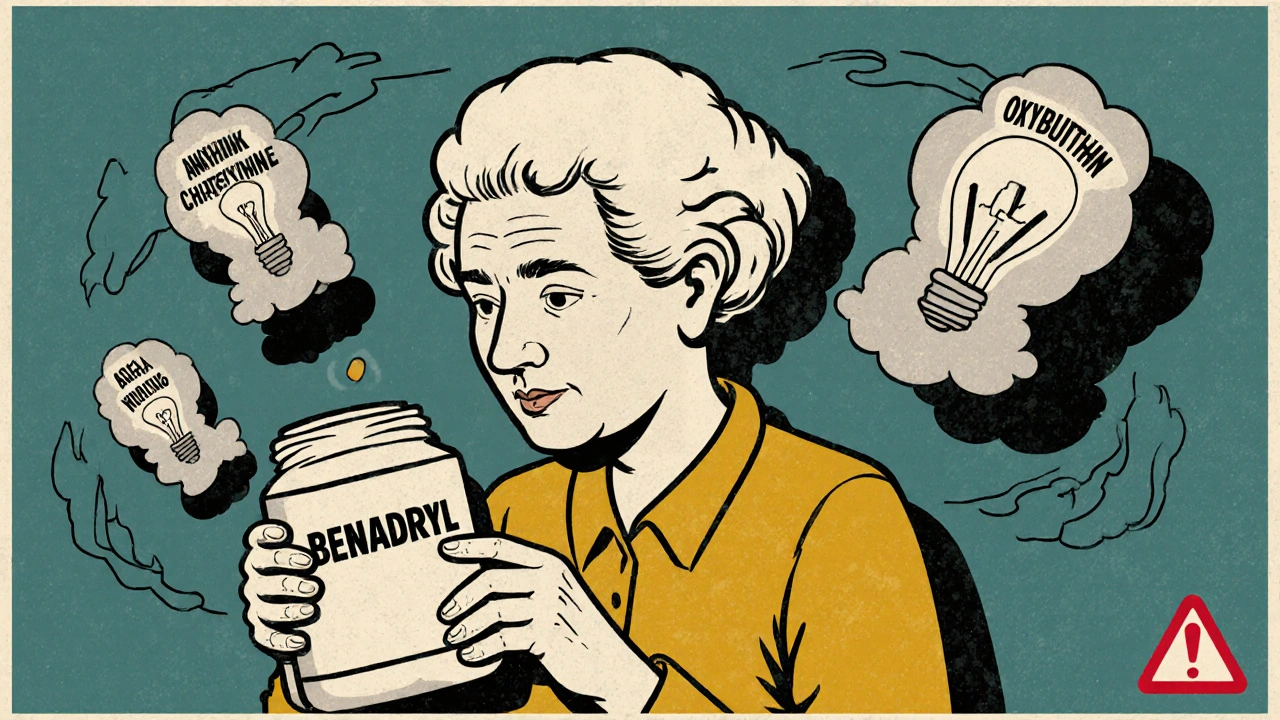Diphenhydramine: What It Is, How It Works, and What You Need to Know
When you reach for a sleep aid or an allergy pill, you might be holding diphenhydramine, a first-generation antihistamine that blocks histamine to reduce allergy symptoms and causes drowsiness as a side effect. Also known as Benadryl, it’s one of the most widely used over-the-counter drugs in the world. But it’s not just a sleepy-time pill. Diphenhydramine shows up in cold meds, motion sickness tablets, and even some combination pain relievers. Its ability to cross the blood-brain barrier is what makes it effective for allergies—and why it knocks you out.
People use it for more than just sneezing. Many take it as a sleep aid because it shuts down the histamine system in the brain, which keeps you alert. But here’s the catch: it doesn’t improve sleep quality. It just makes you tired. That’s why long-term use can leave you feeling groggy, confused, or even more tired the next day. Older adults are especially at risk for falls, memory issues, and urinary problems when they use it regularly. And while it helps with itching from bug bites or hives, it won’t fix the root cause. It just masks the symptom.
It’s also linked to other drugs. You’ll find it paired with painkillers like acetaminophen or ibuprofen in products like Tylenol PM or Advil PM. That means you might be taking diphenhydramine without realizing it. And if you’re already on other sedatives—alcohol, benzodiazepines, even some antidepressants—it can amplify drowsiness to dangerous levels. The FDA has warned about accidental overdose from stacking these meds. Even if you think you’re being careful, the combo can sneak up on you.
There are better options now. Second-gen antihistamines like loratadine or cetirizine work just as well for allergies but don’t cause drowsiness. For sleep, melatonin or cognitive behavioral therapy for insomnia (CBT-I) have stronger evidence behind them. Diphenhydramine was developed in the 1940s. Medicine has moved on. Yet it’s still everywhere because it’s cheap, easy to get, and people remember it from their parents’ medicine cabinet.
So when should you use it? Short-term, yes. For a bad night of allergies or a single sleepless night after travel, it can help. But if you’re relying on it weekly, it’s time to ask why. Is it allergies? Stress? Poor sleep habits? The real fix isn’t another pill—it’s figuring out what’s really going on.
Below, you’ll find real comparisons and practical guides on how diphenhydramine stacks up against other meds, what it does to your body over time, and how to spot when it’s doing more harm than good. No fluff. Just what you need to know to make smarter choices.

